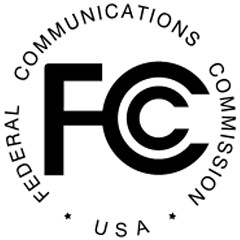
Starting today, the FCC will move forth carving out space for the expansion of its power and spending. The new regulations of the Open Internet Order will place internet service under Title II of the 81 year old Telecommunications Act of 1934. Despite numerous lawsuits challenging the legality of the FCC’s actions, the federal agency will have the increased regulatory power for the interim period while these lawsuits are handled in court.
The following statement can be attributed to Katie McAuliffe, Executive Director of Digital Liberty:
“While the promise of moving these challenges through the court quickly can possibly mitigate uncertainty; a stay would have avoided unnecessary and egregious harm to the industry during the lawsuits litigation period. Only an activist court, not an unbiased judiciary could possibly have denied a stay until the existing seven court challenges had been heard.”
Encouragingly, although the D.C. appellate court denied the motion for a stay, the court also chose to expedite the appeal process. This expedition means oral arguments may be heard as early as December. The court declared the cable and telecom ISPs failed to “satisfy the stringent requirements” necessary to block the implementation of rules while awaiting the result of pending lawsuits. Starting today, the FCC will act as a “referee on the field to keep the Internet fast, fair, and open” according to a statement released by the FCC chairman Tom Wheeler.
While the fundamental capability of a federal bureaucracy to do anything in a manner that is fast, fair, and open is laughable, it is none the less the case that the FCC Enforcement Bureau will begin its reign over the relationship between ISPs and consumers. The case-by-case net neutrality complaint process is a key aspect of this new regime Not all of the leaders of the FCC shared Mr. Wheeler’s glee over this development. FCC Commissioner Michael O’Reilly expressed his discontent in a statement yesterday evening, and vowed to “be vigilant in resisting any attempts by the agency to act as referee enforcing rules known to none of the players and made up along the way”.
Under the Title II classification broadband service will be regulated in the same manner as telephone services. A stay is granted only when the rules in question have the potential to cause egregious harm. This court must have an extremely high-tolerance for harm, because this decision will utterly paralyze internet investment and innovation for the foreseeable future. The court did not comment on the strength of the case against the FCC reclassification. Granting the expedition however is a favorable sign for the ISPs.

